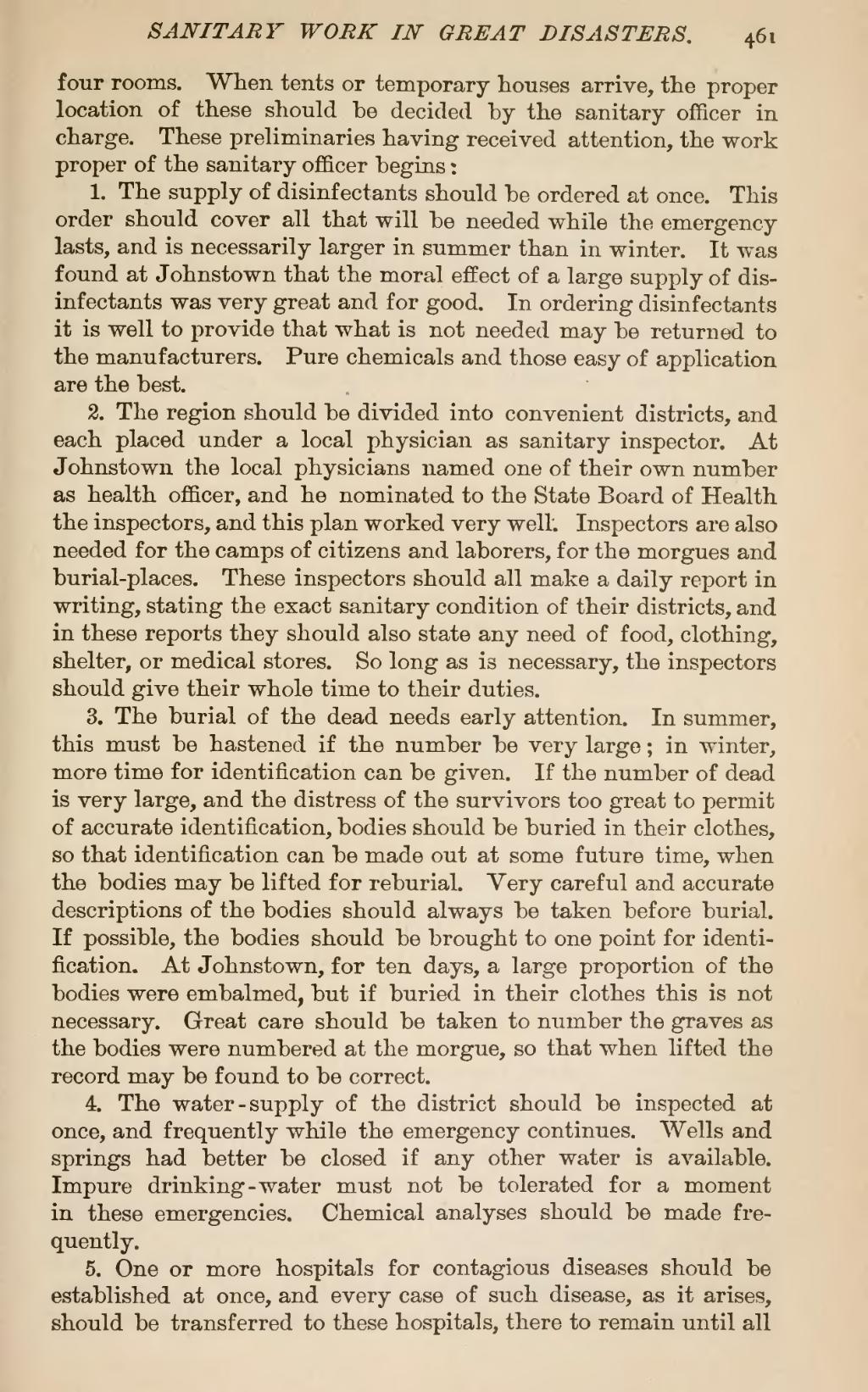four rooms. When tents or temporary houses arrive, the proper location of these should be decided by the sanitary officer in charge. These preliminaries having received attention, the work proper of the sanitary officer begins:
1. The supply of disinfectants should be ordered at once. This order should cover all that will be needed while the emergency lasts, and is necessarily larger in summer than in winter. It was found at Johnstown that the moral effect of a large supply of disinfectants was very great and for good. In ordering disinfectants it is well to provide that what is not needed may be returned to the manufacturers. Pure chemicals and those easy of application are the best.
2. The region should be divided into convenient districts, and each placed under a local physician as sanitary inspector. At Johnstown the local physicians named one of their own number as health officer, and he nominated to the State Board of Health the inspectors, and this plan worked very well'. Inspectors are also needed for the camps of citizens and laborers, for the morgues and burial-places. These inspectors should all make a daily report in writing, stating the exact sanitary condition of their districts, and in these reports they should also state any need of food, clothing, shelter, or medical stores. So long as is necessary, the inspectors should give their whole time to their duties.
3. The burial of the dead needs early attention. In summer, this must be hastened if the number be very large; in winter, more time for identification can be given. If the number of dead is very large, and the distress of the survivors too great to permit of accurate identification, bodies should be buried in their clothes, so that identification can be made out at some future time, when the bodies may be lifted for reburial. Very careful and accurate descriptions of the bodies should always be taken before burial. If possible, the bodies should be brought to one point for identification. At Johnstown, for ten days, a large proportion of the bodies were embalmed, but if buried in their clothes this is not necessary. Great care should be taken to number the graves as the bodies were numbered at the morgue, so that when lifted the record may be found to be correct.
4. The water-supply of the district should be inspected at once, and frequently while the emergency continues. Wells and springs had better be closed if any other water is available. Impure drinking-water must not be tolerated for a moment in these emergencies. Chemical analyses should be made frequently.
5. One or more hospitals for contagious diseases should be established at once, and every case of such disease, as it arises, should be transferred to these hospitals, there to remain until all

